Ecwid vs Shopify (Comparison 2024)
Starting an eCommerce business is a big deal. Whether you’re launching your website from scratch or having multiple web stores, Ecwid vs Shopify could meet your needs.
In this article, LitExtension – #1 Shopping Cart Migration Expert will give you:
-
- A brief introduction of Ecwid vs Shopify
- Key differences between the two eCommerce platforms
- What is your best solution? Is it worth migrating from Ecwid vs Shopify or vice versa?
Ecwid vs Shopify – Overview
#1. What is Shopify?
Shopify is the most popular eCommerce website builder, which allows you to build your website from scratch with tons of options. Shopify is a whole package, a complete solution for your online store to be up and running seamlessly.
If you’re looking for a completed Shopify tutorial, we created this video to help you out!
Shopify pros and cons
Shopify pros:
- Easy-to-use editor to design Shopify storefront.
- Excellent eCommerce features with analytics.
- Multi-channel selling across social channels.
- Robust app store.
- Excellent customer support.
Shopify cons:
- Enforce additional transaction fees for alternative payment methods.
- Monthly costs add up with apps & integrations.
Quick takeaway: Shopify excels for online businesses, both large and small, due to its flexibility, easy management, and robust sales capabilities.
#2. What is Ecwid?
Ecwid is an eCommerce plugin, its main purpose is to help small businesses expand their market. Actually, Ecwid claims to be among the free Shopify alternatives.
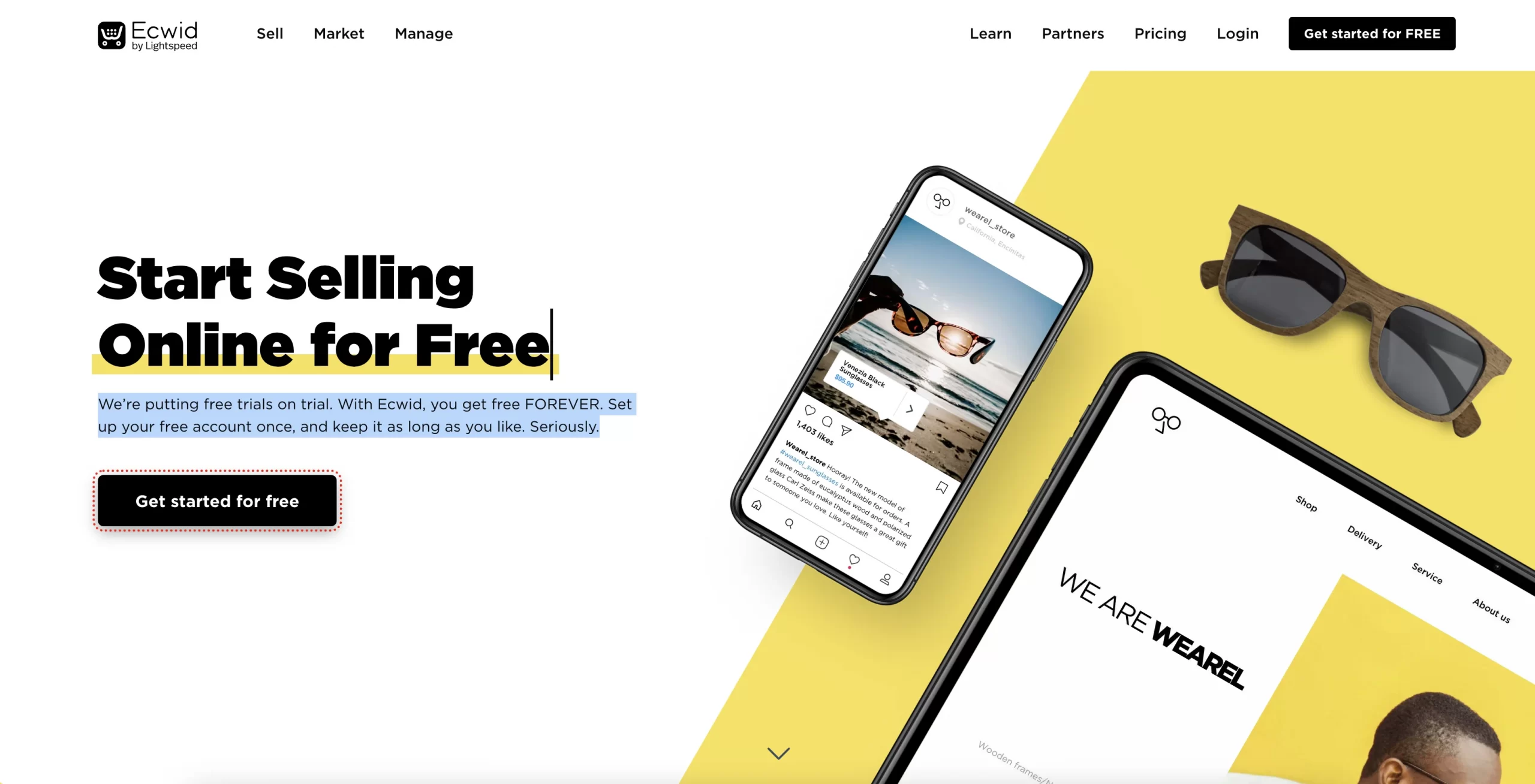
Certainly, Ecwid enjoys its reputation for the ability to integrate into any platform and boost sales effectively. Came to the market in 2009, this platform has helped nearly 900,000 online merchants (source: BuiltWith).
Ecwid pros and cons
Ecwid pros:
- Easy to use drag-and-drop interface.
- Analytics provide basic stats on traffic and sales.
- Integrates with social media platforms and payment gateways.
Ecwid cons:
- Limited customization options for store themes and templates.
- Lacks catalog organization & product filtering tools.
- Limited SEO capabilities.
Quick takeaway: Ecwid is more suitable for small businesses on a budget with basic eCommerce needs.
At a glance, Ecwid and Shopify are both industry leaders with distinguishing features. Let’s dive into all the functionalities that Ecwid and Shopify offer us.
If you don’t want to go through the wall of text, below is a brief comparison between Shopify vs Ecwid.
[wptb id=69344]
#1. Pricing
Quick verdict: Ecwid might have an edge over Shopify in terms of pricing. Though both platforms offer different pricing plans and features, Ecwid is more affordable overall.
Here are key differences in Shopify vs Ecwid pricing:
[wptb id=69353]
In Love with Ecwid Already?
If you are intending to migrate from Shopify to Ecwid, LitExtension offers a great migration service that helps you transfer your data accurately and seamlessly with utmost security.#2. Ease of Use
Quick verdict: Ecwid is the winner. Within a few clicks, your Ecwid store is ready to start selling.
The interface of the Ecwid control panel is simple yet visually appealing. Offering various settings, the Ecwid dashboard ensures users follow the wizard’s instructions to set up their store.
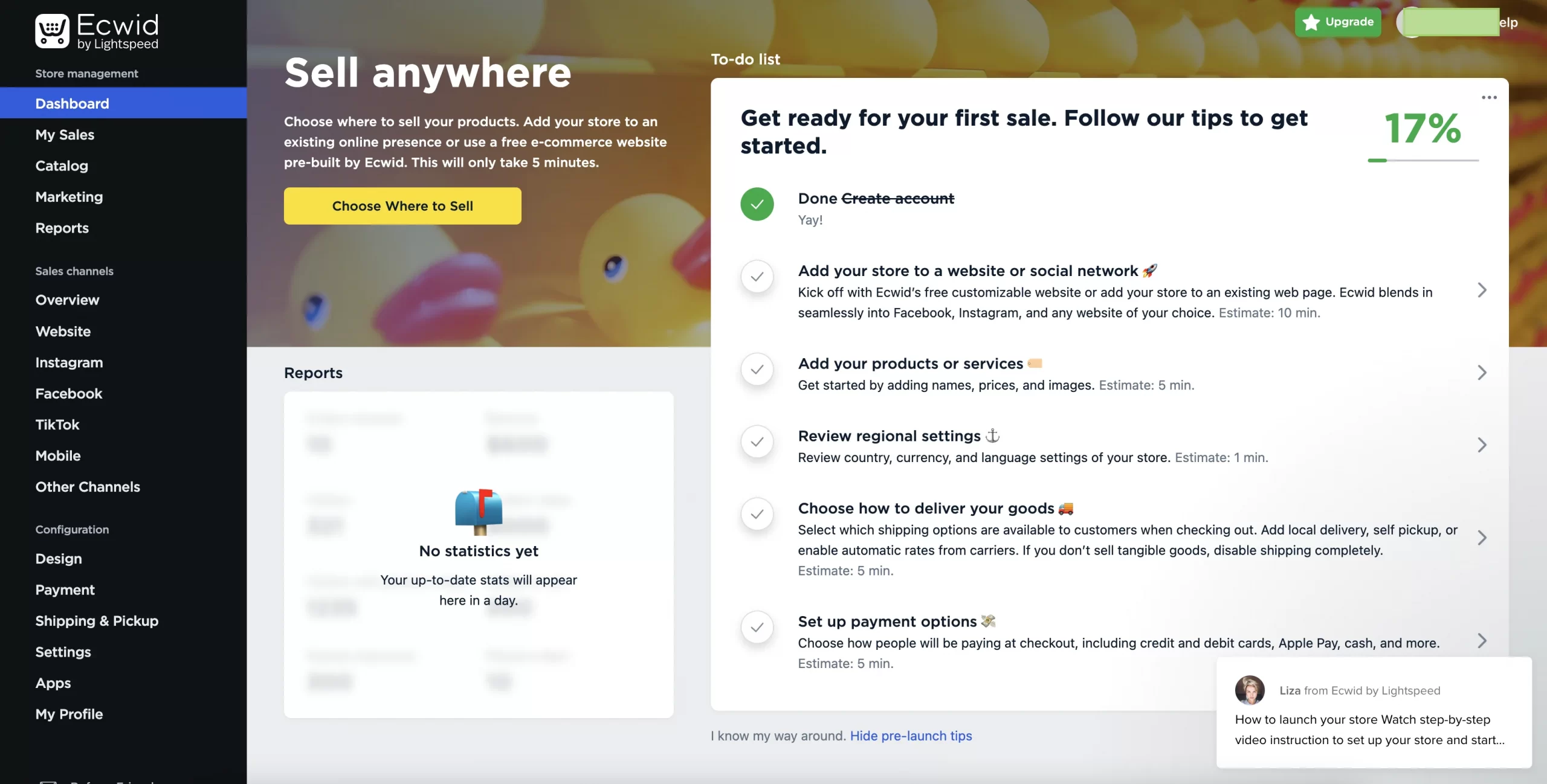
The new store’s build time for each platform also differs. In this regard, Ecwid, in case users have their current store running, takes little time to integrate into Ecwid.
The process is simple, as Ecwid automatically matches and adapts to your current store theme and templates. This could be done with a few clicks in the dashboard settings.
Whereas, with Shopify, it takes lots more effort since you’re creating an entire online store from scratch.
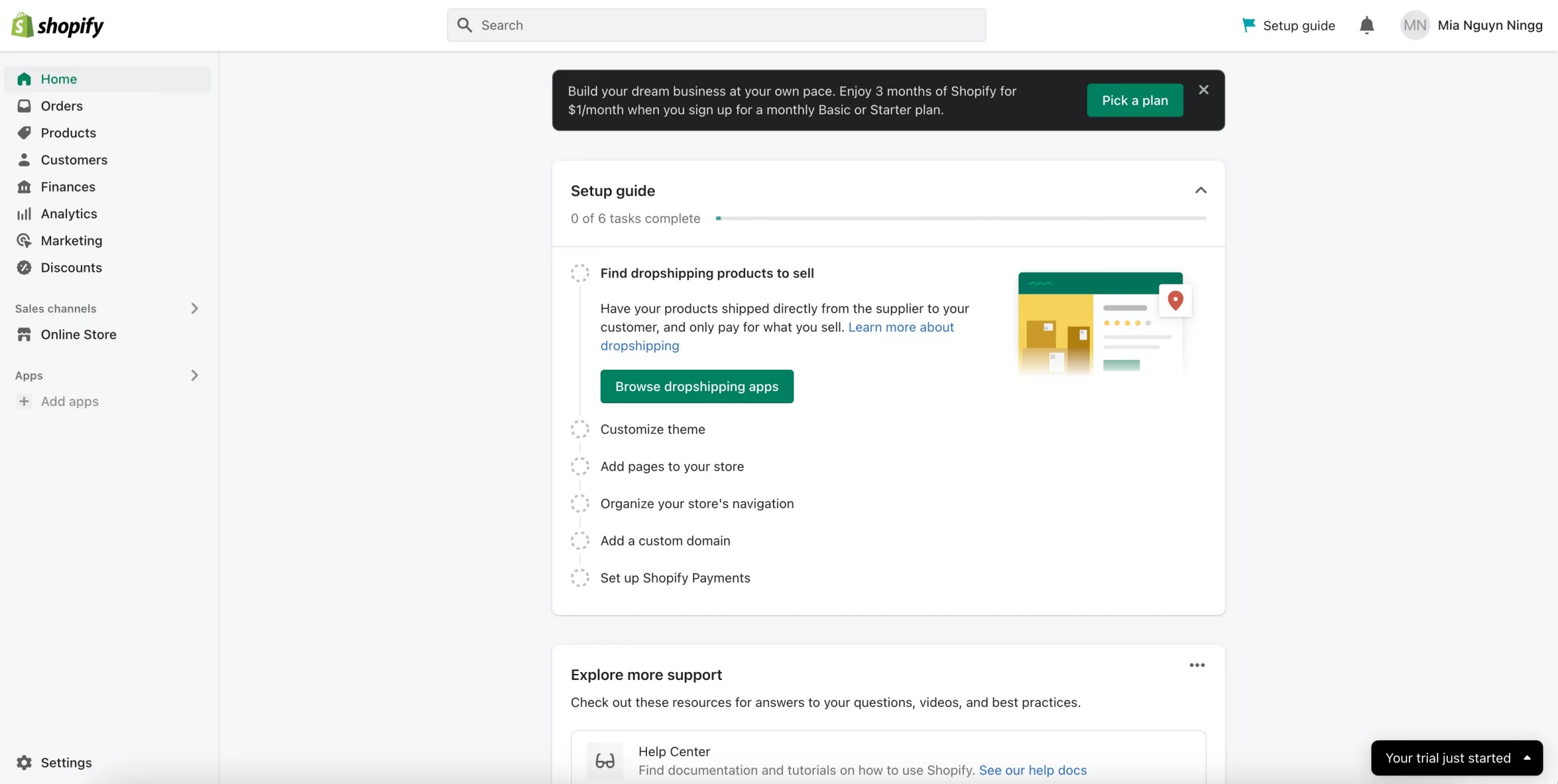
Yet, Shopify will impress any user with its logical structure and endless choice of designs. Whether you are a beginner or a web design expert, you will definitely find joy in the web-building process.
It is not only visually appealing, but it also triggers the urge to keep working with it. What’s more, Shopify offers endless features and customization options for your store to look as professional as ever.
#3. Inventory Management
Quick verdict: Shopify once again wins regarding Shopify vs Ecwid inventory management.
Both Ecwid vs Shopify facilitate storeowners with full functionalities to manage sales and supervise their inventory on the go (both for iOS and Android).
With Ecwid, you only access basic inventory tracking at the product level. Though you can track stock quantity, there’s no location or variant management.
After integrating your online store into social platforms or marketplaces, your online sales shall be synced automatically across all channels. They are free to download; however, for Ecwid, managing all the selling channels (eBay, Amazon, Facebook, Instagram..) from the phone’s app is for paid plans only.
Now coming to Shopify. This platform offers robust stock management tools for tracking individual item quantities. Users can manage inventory across locations and warehouses.
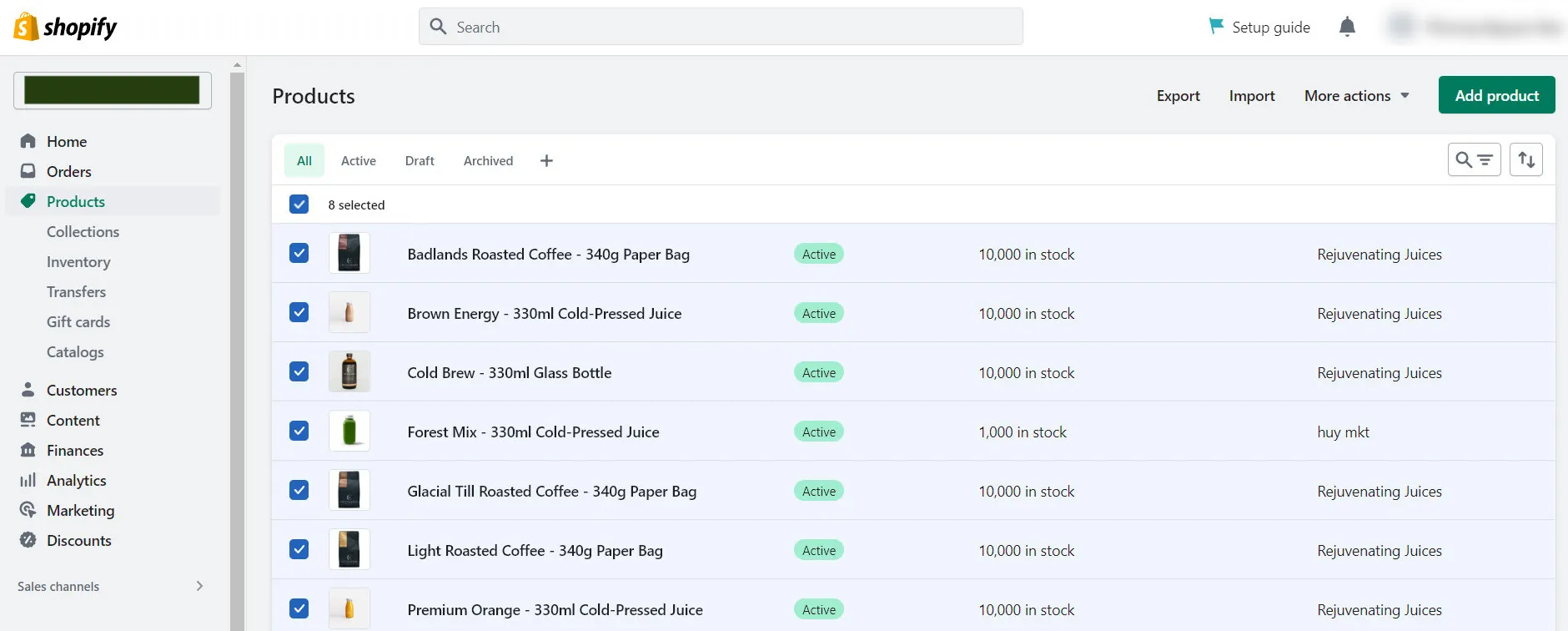
For example, Shopify uses Buy Button to allow store owners to sell products across different marketplaces (more information in this section) and manage them all in Shopify’s control panel.
In summary, Shopify offers a more fully-featured and flexible inventory system out of the box with tools for multi-channel retailers. Ecwid’s stock tracking is simpler and better suited to smaller single-channel merchants.
Seamless Migrating Your Store to Shopify
Our team of experts can safely transfer your business data, products, customers, and orders to unlock more growth in this promising eCommerce platform. Let us provide a customized migration for you!
#4. Point of Sale (POS)
Point-of-sale or POS is what allows you to sell in the physical storefront and on the web store as well.
Quick verdict: Shopify wins in Ecwid vs Shopify POS comparison.
Ecwid also offers point-of-sale features, but it tends to be more limited. What’s more, you need to be on the Ecwid Unlimited plan to access POS. From my viewpoint, it’s rather limited, with only 3 options: Square, Clover, and Alice, which are not available in all countries.
To compare, Shopify itself has built-in Shopify POS features (Starter and Retail). With Shopify, the POS features are integrated into all paid subscription plans. However, you need to be on the POS Retail Plan ($89/month) to take advantage of POS’s full features.
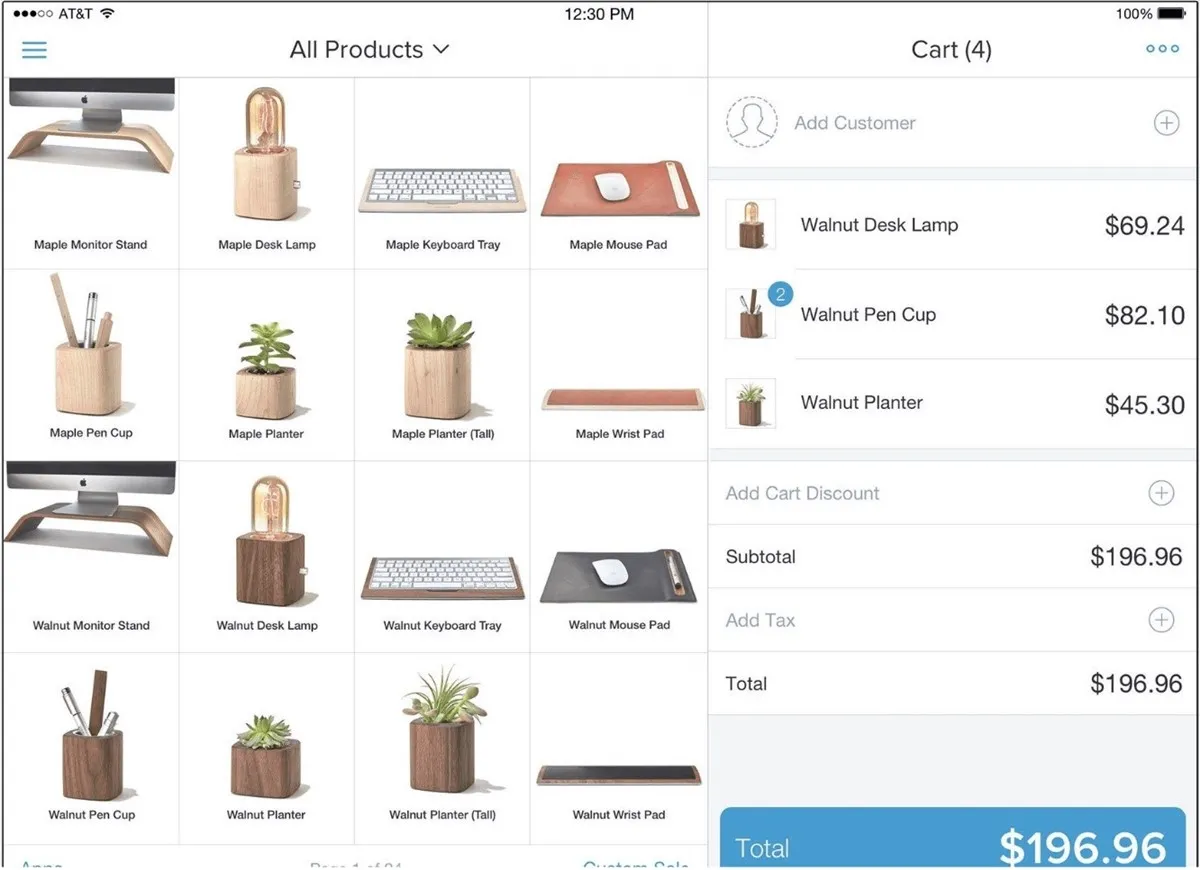
#5. Design & Customization
Quick verdict: Between Ecwid vs Shopify in this round, Shopify wins overall.
As I have mentioned above, Ecwid is tailored for merchants who already have their own websites. Therefore, Ecwid has shortened the process as much as possible.
In case you want to create a standalone website, Ecwid only offers one theme. Hence, users, in comparison to Shopify, may not customize this theme as freely as they want. There are paid themes if you wish to buy one in Ecwid’s App Market.
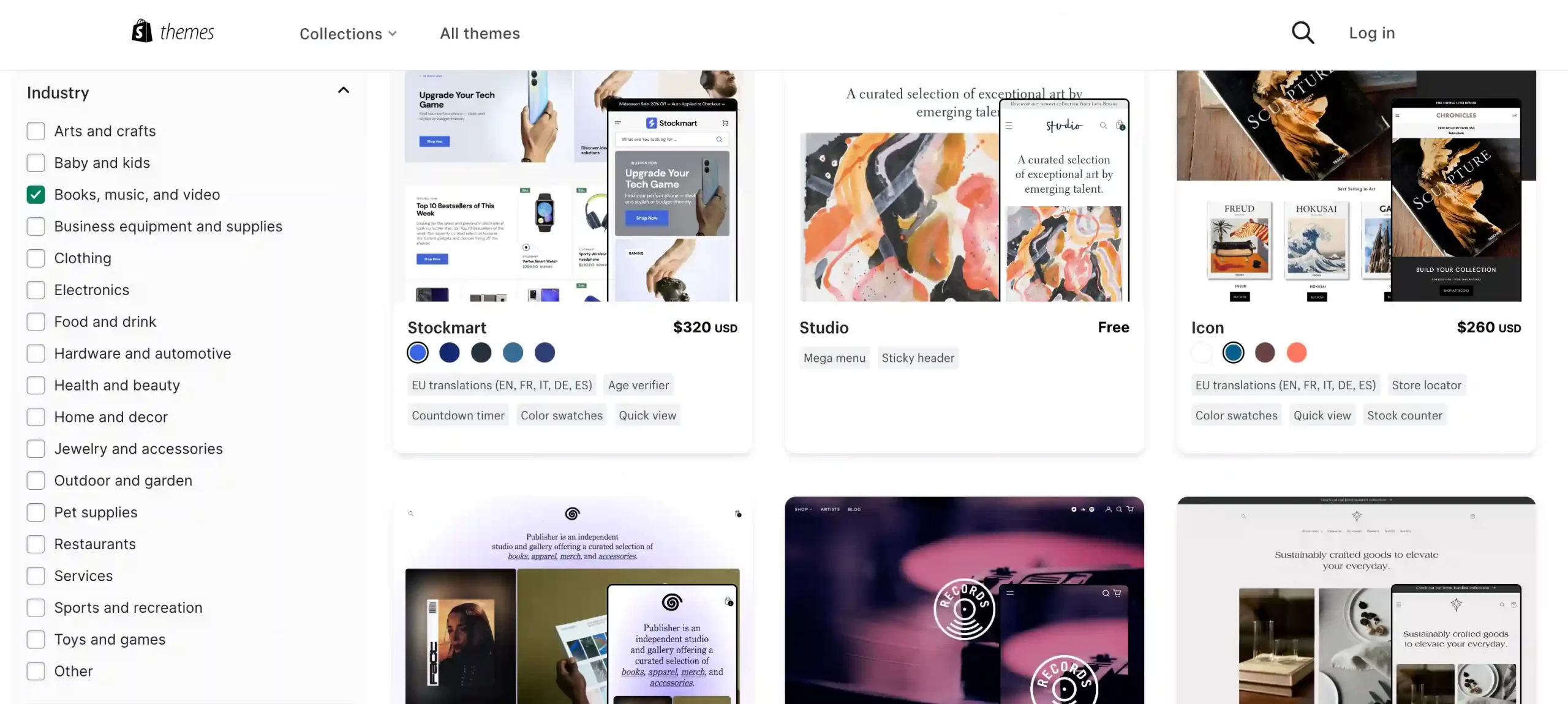
On the other hand, Shopify is very flexible when it comes to design. There are 170+ website templates available on the Shopify Theme Store. What’s more, for those who want to hand-make their themes using codes by CSS or HTML, Shopify could meet your needs.
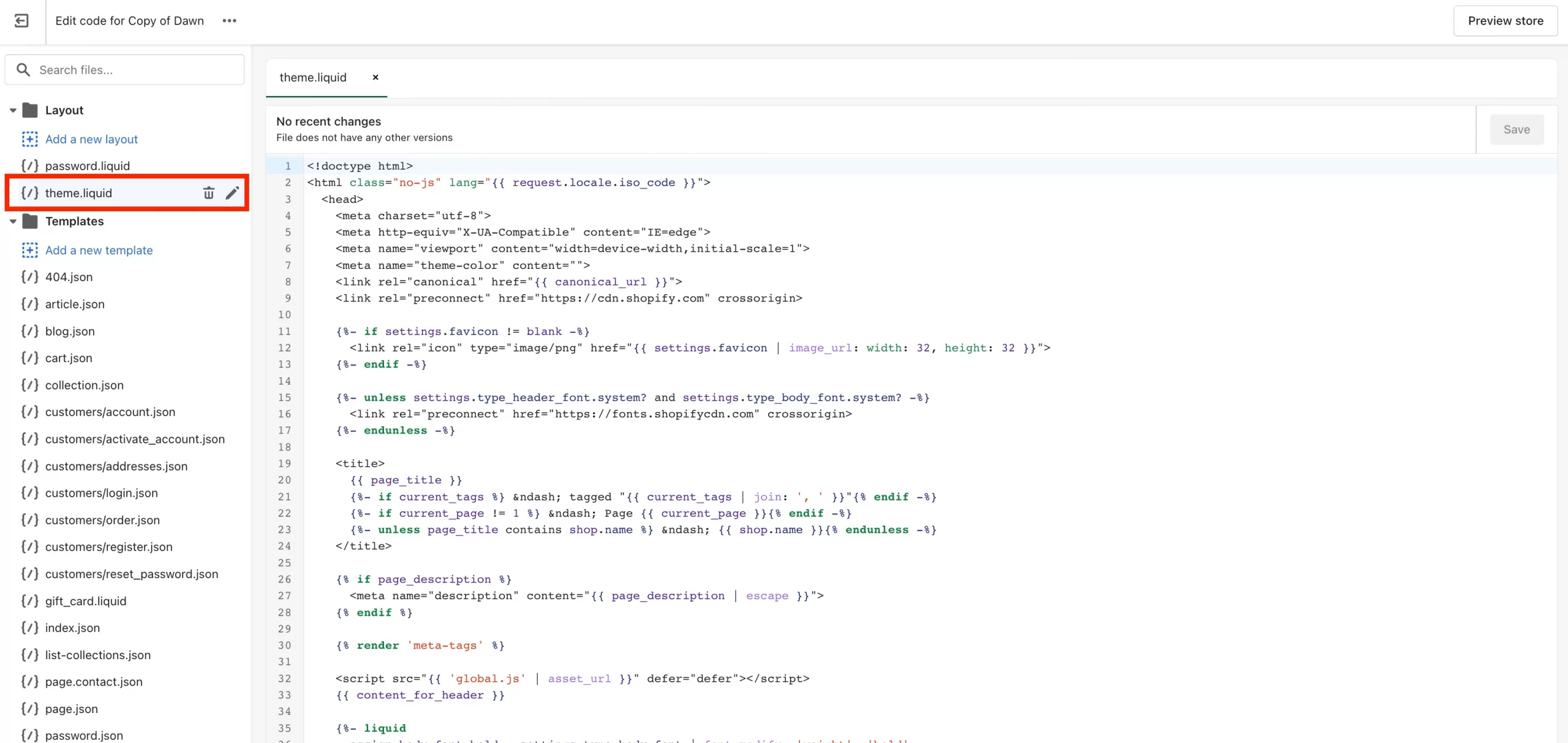
#6. Multiple selling channels
Quick verdict: It’s a draw between Ecwid vs Shopify in multiple selling channel comparison.
Both Shopify and Ecwid allow selling on multiple channels.
Let’s first talk about Ecwid. You can have your complete store integrated with Ecwid, which includes all the necessary functions such as product search, product options, account creation, etc.
Let’s say, customers want to choose from some more sunscreen options instead of the embedded product. Mind that Ecwid integrations with your current store are free, but you need to be on the Venture plan to sell on social platforms (Facebook, Instagram, Messenger) and on the Business plan for eBay and Amazon.
In the meantime, Shopify’s Buy Button is simply a button that allows customers to conduct online purchases on any marketplace, social platform, or other eCommerce platform (Wix, WordPress, Weebly, or Squarespace) without having to visit Shopify’s store.
This is extremely convenient for retailers to boost their sales. For example, imagine when customers are reading a blog on “Why sunscreens are important”, and at the bottom of the blog pops up a nice 50+++ SPF sunscreen product with that Buy Button; they are very likely to go for it.
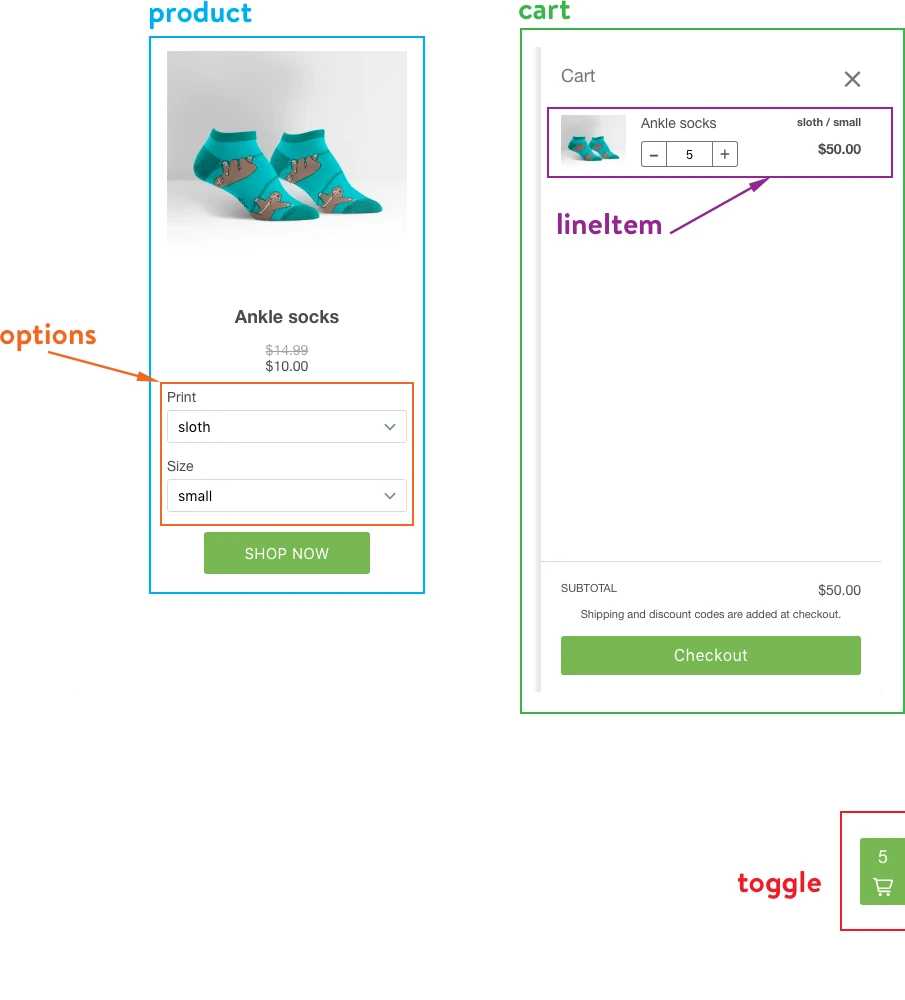
Furthermore, many merchants choose to integrate Shopify or Ecwid into a central platform for better management. This way, you can easily connect your shopping cart with multiple marketplaces such as Shopify Etsy integration or Shopify eBay integration.
#7. SEO & Marketing
Quick verdict: Shopify takes the trophy in this SEO and marketing competition.
Mind that online stores launched by Ecwid are considered by the search engines as JS script due to the use of AJAX. However, such platforms are not suitable for standard SEO promotion.
Ecwid has a “Promotion” settings, but it only includes partners-related features such as the Facebook app, external trading platforms, etc. This means Ecwid doesn’t have standard SEO settings for online retailers.
With marketing, Ecwid only offers basic email tools that require more robust apps. Its analytics are limited without integrating third-party tools.
On the contrary, Shopify’s SEO feature set is generally stunning and compares favorably with other SaaS platforms. Everything on-page SEO in Shopify is very easy to manage, from changing titles and meta descriptions to adding headings and alt text.
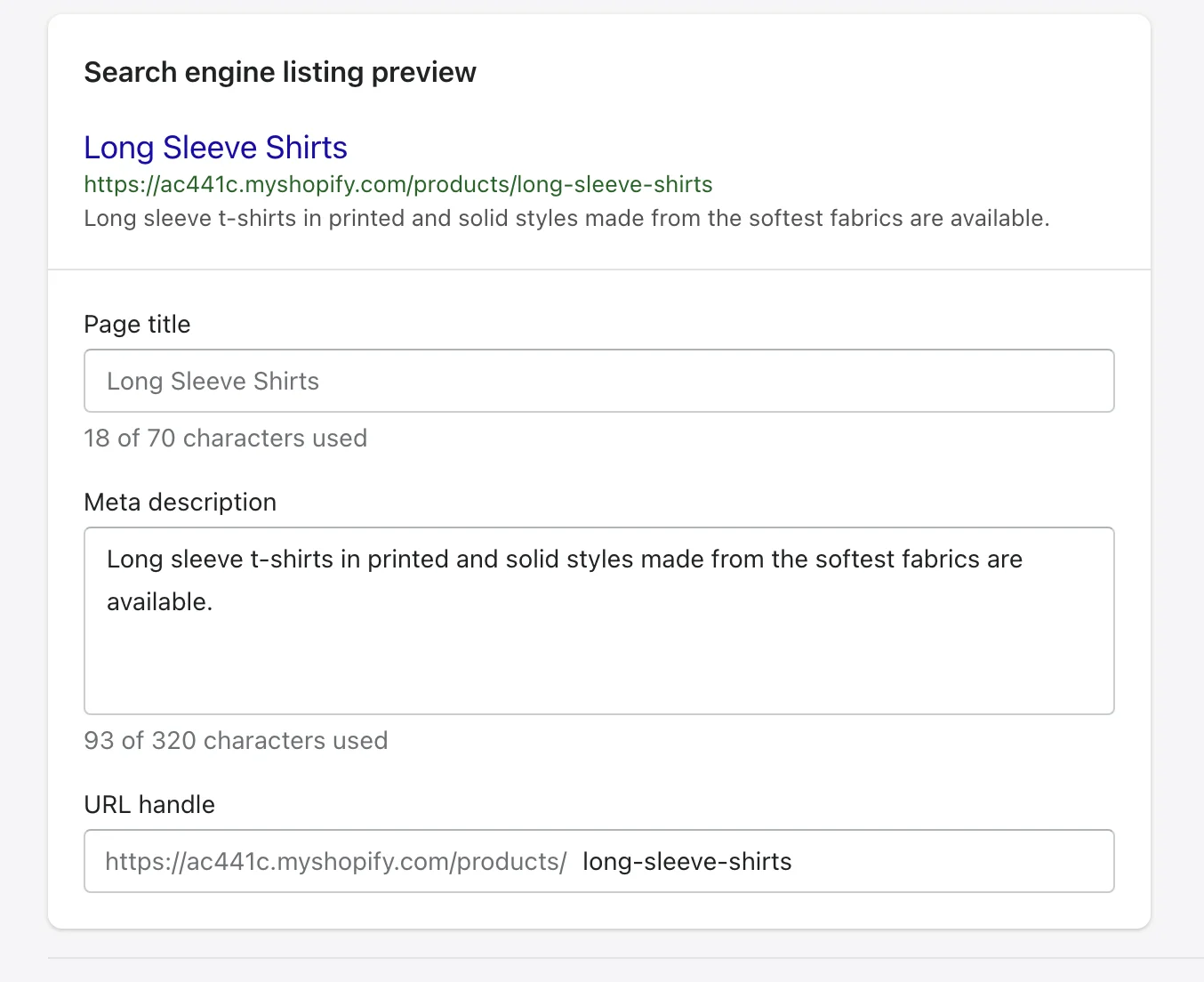
When it comes to email marketing, Shopify makes it simple to set up automated abandoned cart emails and email campaigns. This platform also includes more detailed analytics and reporting options.
#8. Payment options
Quick verdict: It’s a tie.
Different people have different preferences. Thanks to a vast deal of payment gateways, your customers will have more options to choose from. This enhances your customers’ experience, decreases abandoned carts, and eventually, improves sales volume.
With Ecwid, you can process credit cards with Paypal, one of the top payment gateways, with no extra charge other than Paypal’s fee. Besides, there are about 100 other payment gateways you can connect to Ecwid. Some of the payment gateways are country-specific, so the exact tax and fee will depend on your location.
Shopify also provides more than 100 options in this regard. Specifically, you can use Shopify Payments – Shopify’s built-in payment system. Should you use this method, there are no transaction fees at all, which is great. However, there is still a ‘credit card rate’ to consider with the fee (the more expensive the plan, the lower the rate).
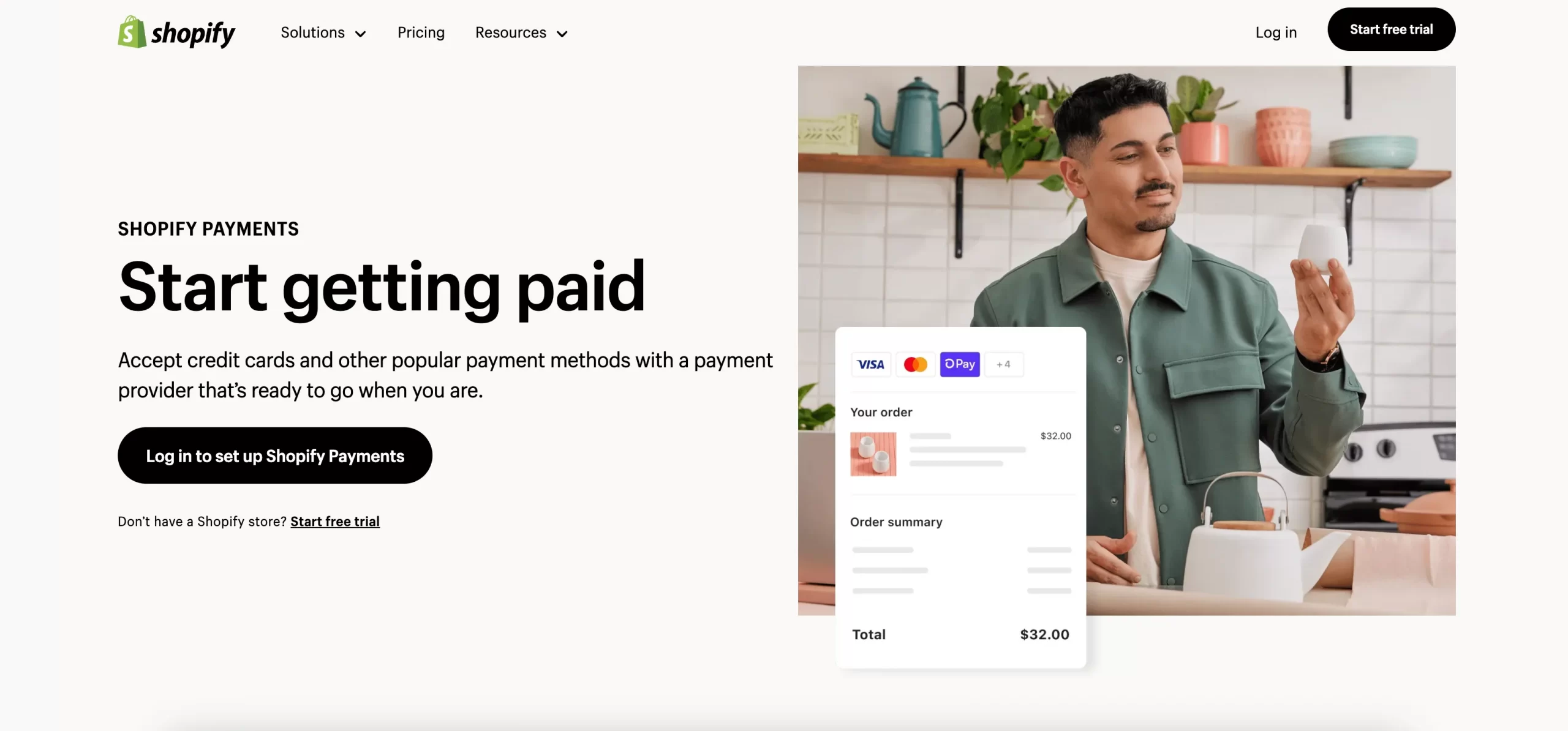
Alternatively, you can opt for a third-party payment gateway to process card transactions. If you use a payment gateway, bear in mind that Shopify will apply a transaction fee as well.
Save Time Import Store Data to Shopify
Trusted specialists streamline migrations that actualize ambitions.
#9. International selling
Quick verdict: In this language translation competition, Ecwid has a competitive edge.
Buyers all over the world enjoy viewing products in their native language. In terms of language flexibility, due to Ecwid’s multilanguage detection and translation ability, you are free to choose among 51 languages to translate your sites, which certainly draws more traffic worldwide.
Differing from Ecwid, Shopify requires users to install third-party translation apps and a multi-language compatible theme. After adding and publishing a language, customers can browse your website and receive emails and bills in their languages. Langify and Langshop are the only two third-party apps that Shopify supports, and it comes with an additional charge.
What’s more, Shopify also supports selling to new international markets, which can be done with just a few clicks through Shopify Markets.
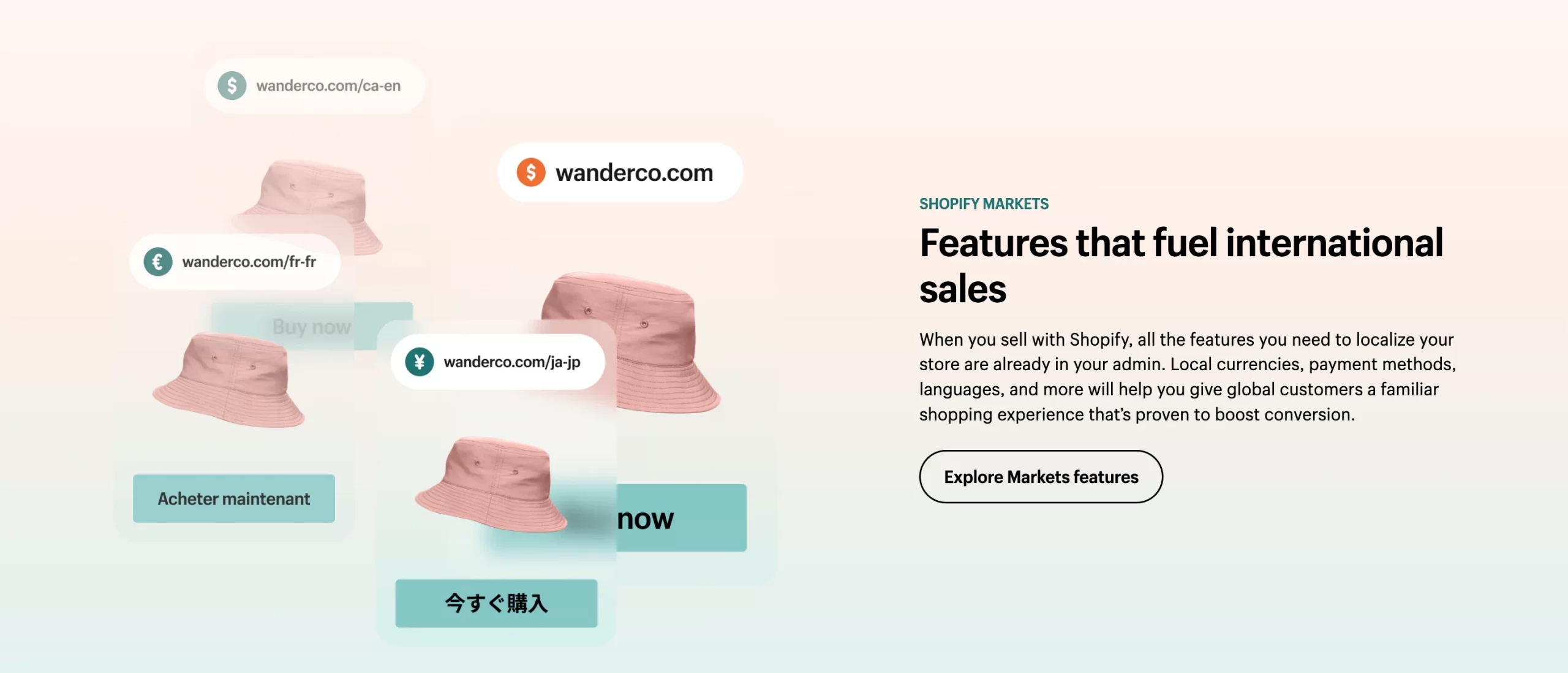
Through Markets, you can access tools built directly into Shopify to help localize your online store for international customers. This includes translating content, displaying prices in local currencies, and accepting popular local payment methods.
This update from Shopify makes Ecwid vs Shopify international selling competition even more fierce. If not to mention the built-in translation features of Ecwid, we find that Shopify offers a pretty good international selling feature.
We’ve compiled more resources about Ecwid and Shopify:
#10. Apps
Quick verdict: Shopify spares more room for development than Ecwid does.
Like other eCommerce platforms, Ecwid provides a number of integrations with other web apps, allowing purchases via its App Market. Well-known extensions are arguably limited, but integrations exist with fundamental tools like Mailchimp, Xero, ShipStation, or Taxjar.
By contrast, Shopify is packed with over 8,000 apps which are developed by both in-house teams and third-party developers.
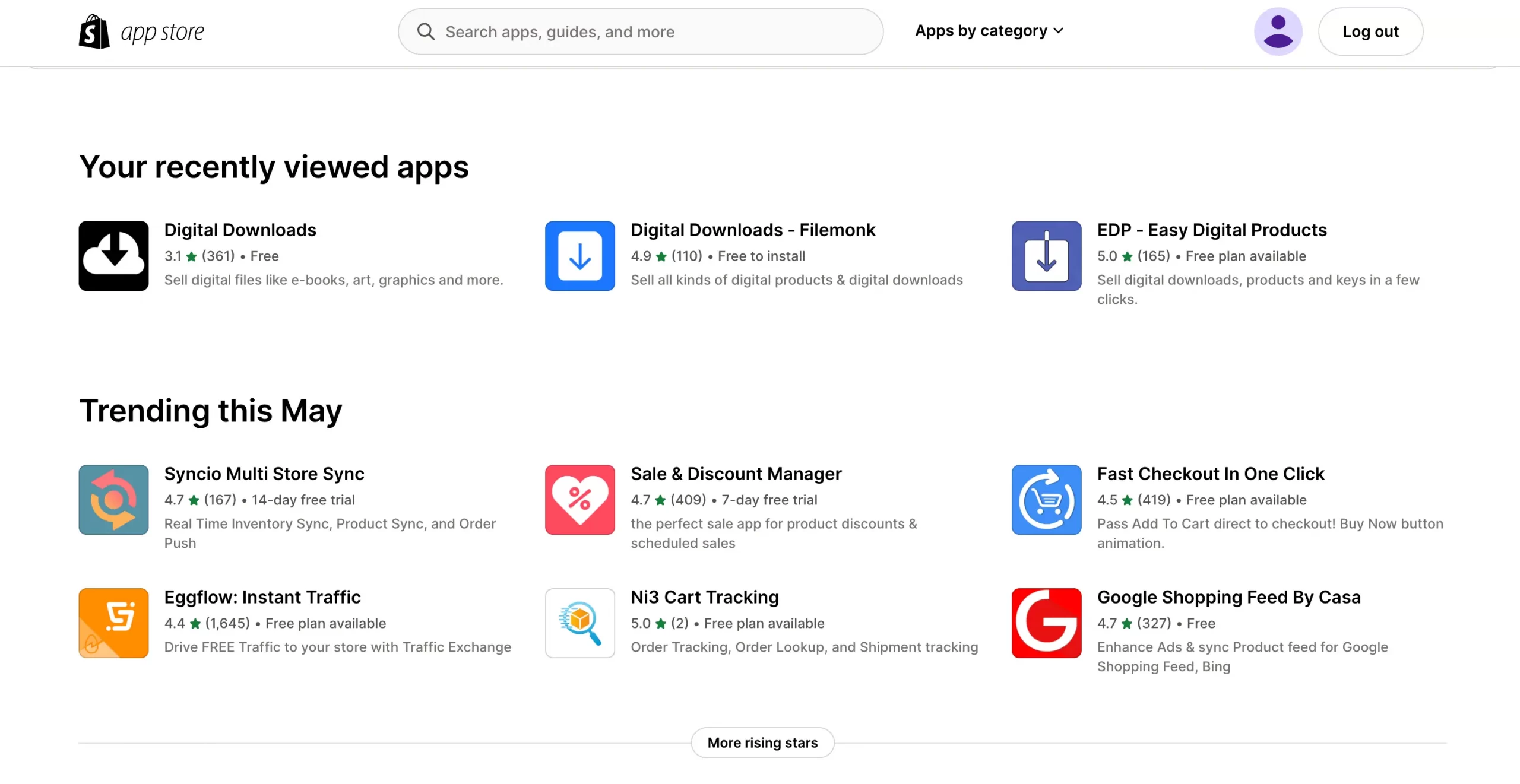
From my own viewpoint, Shopify’s active development keeps apps bug-free while also delivering ongoing feature improvements based on user feedback.
#11. Support
Quick verdict: The crown goes to Shopify in terms of Ecwid vs Shopify support.
Ecwid vs Shopify both offers comprehensive customer service. Users are entitled to access email, live chat, or phone support 24/7.
Both two platforms provide their own YouTube channel, a blog with a rich selection of educative videos, tips, FAQs, and a forum filled with thousands of topics relating to users’ experience with the platform.
While support is provided for all Shopify’s paid plans, Ecwid’s level of support depends on the type of plan you are on; here are the details:
- Free Plan: Email.
- Venture Plan: Email and live chat.
- Business Plan: Email, live chat, and phone.
- Unlimited Plan: Email, live chat, and priority phone support.
In short, Ecwid only provides full-on support for the Unlimited plan. Meanwhile, Shopify is more generous, with full support available to all paid plans
Ecwid vs Shopify: FAQs
[sp_easyaccordion id=”48436″]
Final Words
All in all, in this comparison between Ecwid vs Shopify, both solutions are strong and competitive in the eCommerce market. However, they possess distinct features and purposes.
Apparently, Shopify offers to sell on larger scales and support growth better than Ecwid with SEO features and various plan options for scaling high-volume traffic. However, Ecwid understands the needs of small online businesses. If you’re not sure about Shopify, try out its 3-day free trial to see how it works.
Should you have any questions regarding Ecwid or Shopify migration, the LitExtension support team is more than happy to help! You can also check out LitExtension blog and join our Facebook Community to gain more eCommerce knowledge.
